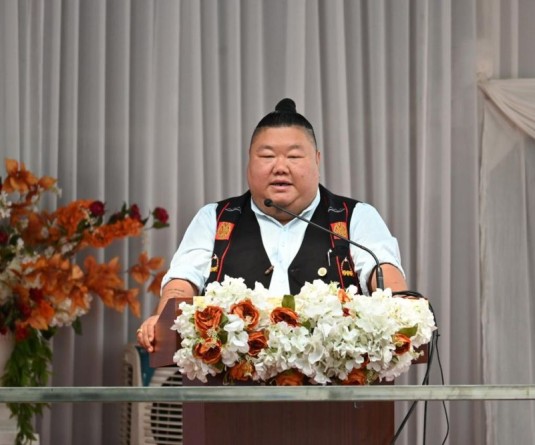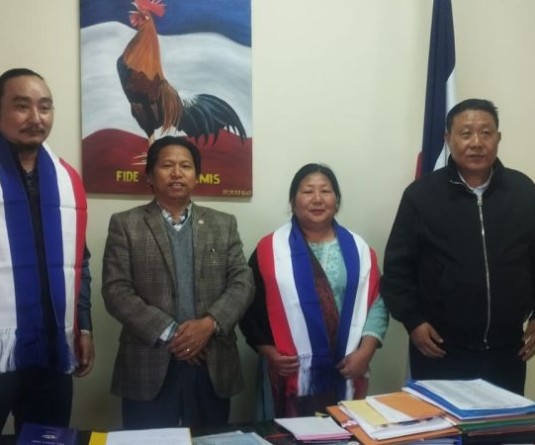
Kohima, September 22 (MExN): A seminar on the impact of violence on woman and children in conflict areas in India, with particular reference to North-East, was organized by St. Joseph’s College of Jakhama, in collaboration with Tata Institute of Social Sciences Research Centre today. The seminar was sponsored by Indian Council of Social Science Research.
On the first day of the seminar, the key note address was delivered by Prof. Virginius Xaxa in the inaugural session. He stressed on the need to explore and address the violence on children more as it is neglected in comparison to studies on violence on woman. He also highlighted some wide range of issues such as whether there is a possibility of various fields of sciences to come together and the tackle the issues to bring a solution to all this conflicts; the need to study short term and long term impact of violence also livelihood and displacement, mental and emotional dimension needed to be explored.
Dr. Xavier Mao was the speaker and his topic was ‘man, moral and violence’ he stressed on the importance to discuss violence in a holistic way. His findings were that violence and torture on women in some parts of India is sex-related and is also mostly based on Myth, false belief, wrong priorities and historical differences. However, in North East Violence is mostly perpetrated by the state which is more dangerous especially in the context of Government of India promulgation of Special Power Act, he said.
He suggested that the state and people should reasonably and rationally resolve the issue peacefully with a sense of seriousness. He also said non-violent value is the only method and way to combat conflict. During the second session the first paper entitled “Educational Development in Manipur, Interface with Conflict” was presented by Dr. Komol Singha, Dr. Marchang Reimeingam and Saju Mathew.
Their main arguments were casual relationship between conflict and education in Manipur. They debated on whether education helps solved conflict or compounds the problem. Correlations between Insurgency related fatalities and education, was another point they discussed.
The second paper entitled “Rethinking justice of sexual crimes: Realities in North East India” was presented by Dr. Arzuman Ara and Dr. Arjuman Ara. Their main arguments were that sexual crimes “remains silent, therefore there is a need to rethink the element of justice in sexual crimes.”
Dr. V. Sawmveli presented the last paper on the session II entitled, “Crab Theology: Christianity and conflict in North East India”. Her main arguments were: Enhancing the role of women against the backdrop of Christianity in situations of conflict in NE India; the role of church and women in the Mizo Peace process and also women’s resistance.
Also, Thejanuo Fidelia Sekhose presented a paper on “Armed Violence and Women in North East, India: Challenges and responses with Reference to Nagaland.” Her findings were based on health and socio-psychological impact, political, legal and cultural impact and economic and financial impact which she said were “all advised towards children and women.” She suggested the need for counseling and re-habilitation programmes. She concludes for self-empowerment and to empower women, various organizations, parties or factions and govt. machineries should turn their attentions earnestly towards the victims of Armed Violence and Conflicts.
The last paper was presented by E Thangasmy entitled “Impact of Violence on Women and Children: Human Rights in the North Eastern Region”. His findings were that women and children enjoy more freedom in the society of NE but the representations of women in decision-making bodies at state level are neither encouraging nor remarkable. He pointed out two dimensions of Violence on women: domestic violence and violence resulting from the situation of armed conflicts. He also found that there is absence of Human Rights regime in NE.
Giving remarks, Fr. Abraham, Principal of the college, said scholars for such discussions should be wise enough to choose topics that are not too vast to chew, how data can be looked from different perspectives and that scholars and researches should be prepared and avoid unnecessary confusions and be able to justify things pertaining to their topics to the audience.





